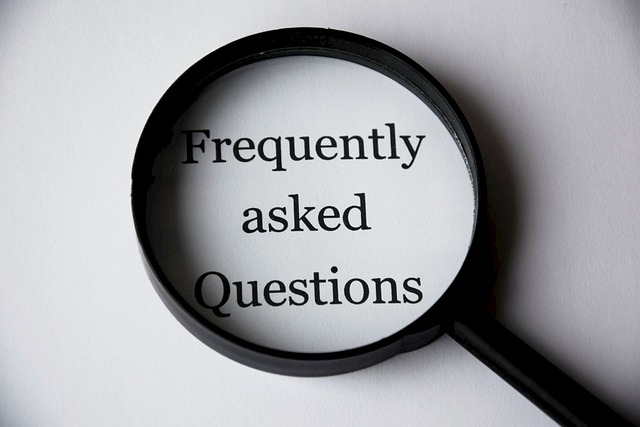What does it mean to Buy a Business?
Buying an existing business entity presents unique opportunities and challenges compared to starting a new venture from scratch. It allows aspiring entrepreneurs to leverage established customer bases, operational infrastructure, and brand recognition while still requiring careful consideration of various factors before making such a significant investment decision.
Business Acquisition
Business acquisition refers to purchasing an existing company instead of starting a new business from scratch. This can be an attractive option for individuals who want to enter the business world without dealing with the challenges and uncertainties associated with a startup.
Buying Process
The buying process involves several key steps, starting with evaluating the right business to purchase. This evaluation includes considering factors such as industry trends, market demand, and growth potential. Conducting thorough market research is vital to defining the competitive landscape and identifying opportunities for growth within the chosen industry.
Business Plan
Buyers often need to develop a comprehensive business plan that outlines their strategies for operating and growing the acquired business. Working with a professional business broker can help prospective buyers navigate the complexities of finding suitable small businesses for sale.
Purchase Agreement
Once a suitable business has been identified, the next critical step is drafting a purchase agreement. This legal document outlines various aspects of the sale, including the purchase price, financing details, allocation of business assets, non-compete agreements, and any contingencies related to the transaction. The purchase agreement is a formal contract between the buyer and seller, clarifying both parties’ rights and obligations throughout the acquisition process.
Where can I find Small Businesses to Buy?
Individuals seeking to purchase a small business have various avenues to locate suitable ventures. Each option offers distinct advantages, whether it’s the convenience of online browsing, personalized assistance from brokers, networking opportunities within professional circles, or uncovering hidden gems through local advertisements.
Online Marketplaces
Online marketplaces such as BizBuySell and BusinessBroker.com provide many small businesses for sale. These platforms offer various options, allowing potential buyers to explore different industries, locations, and price ranges. They often include detailed listings with information about the business, its financials, and the selling process.
Business Brokers
Business brokers play a crucial role in connecting buyers with small business sellers. They have access to an extensive network of businesses for sale and can help buyers navigate the complexities of the buying process. Working with a reputable business broker can streamline the search for suitable opportunities while providing valuable insights into market trends and negotiations.
Industry Associations and Local Chambers of Commerce
Industry associations and local chambers of commerce serve as valuable resources for uncovering potential business acquisition opportunities. Attending industry-specific events or joining professional groups allows prospective buyers to connect with small business owners who may be considering selling their enterprises. This approach facilitates access to unadvertised sales and enables buyers to gain insights into specific industries from experienced professionals.
Local Advertisements and Industry-Specific Publications
Small business owners looking to sell often advertise locally or through industry-specific publications. Scanning local newspapers, community boards, or trade magazines can reveal businesses not listed on online platforms or broker networks. Engaging directly with these sellers may present unique opportunities and potentially lead to favorable terms due to reduced competition from other buyers.
How do I determine if I should Buy a Small Business?
Buying a small business can be lucrative, but a thorough evaluation is essential before making any commitments. Here are the key steps in determining if buying a business is the right move for you.
Evaluate Your Financial Situation
Evaluate your financial situation to ensure you can afford the business’s purchase price. Consider factors such as available savings, potential financing options, and the overall investment required. It’s crucial to clearly understand your financial capabilities before pursuing a business acquisition.
Assess Growth and Profitability Potential
Assess the potential for growth and profitability by analyzing the business’s customer base, sales performance, and expansion opportunities. Look into market trends, industry forecasts, and competitive landscape to gauge the long-term viability of the business. Understanding these aspects will help you make an informed decision about whether the company aligns with your goals.
Explore Financing Options
Explore various financing options available for purchasing the business. Calculate all associated costs, including legal fees, franchise fees (if applicable), inventory expenses, and working capital requirements. Understanding the total costs involved will clarify how to structure financing arrangements effectively.
What are the benefits of Buying a Small Business?
Buying a small business offers several benefits. Here are some of the potential advantages you should know.
Lower Startup Costs and Established Customer Base
Buying a small business comes with the advantage of lower startup costs compared to starting a new business from scratch. This includes the existing business licenses, assets, legal paperwork, an established business concept, and more.
When you purchase an existing business, it often already has an established customer base, which can provide immediate revenue and cash flow. This reduces the time and effort required to build brand awareness and attract customers, giving you a head start in generating income.
Opportunity to Build on an Existing Business Plan
Acquiring a small business allows you to capitalize on an already established business plan. You can analyze its strengths and weaknesses and then implement further improvements or strategies to grow the business. This opportunity gives you a solid foundation to work from while still allowing room for innovation and creativity in shaping the company’s future direction.
Access to Financing Options and Potential for Higher Sales
When purchasing an existing small business, there may be more financing options available compared to starting a new venture. Lenders tend to view established businesses as less risky investments, making it easier for you to secure funding.
Since the business is already generating sales, there is potential for growth and increased profitability. You can leverage the existing customer base with effective management and strategic decisions to drive higher sales.
Potential to Buy a Company with Proven Success
For individuals interested in companies with proven revenue streams, acquiring a small business offers access to well-known brands with proven success in their respective industries. Established businesses often come with existing cash flow, existing employees, established operational processes, marketing strategies, and support systems provided by the franchisor (if applicable). This minimizes some of the risks associated with starting a new venture while offering opportunities for growth within an established framework.
What are the drawbacks of Buying a Small Business?
While there are potential benefits to buying a small business, you should also know the drawbacks.
High Purchase Price Can Be a Barrier for New Business Owners
Starting a small business from scratch can be financially challenging, but acquiring an existing business usually has a higher upfront purchase price. There may be expenses beyond the initial purchase price as well.
These may include inventory, equipment, lease agreements, and potential renovations. New owners might need to allocate funds for marketing and operational expenses as they take over the business.
May Come with Hidden Financial Challenges
While buying an established business presents opportunities, it can also involve unforeseen financial burdens. For instance, there could be outstanding debts or legal liabilities attached to the business that becomes the new owner’s responsibility.
There could also be issues with business operations or environmental regulations. Moreover, if the company has been struggling financially before being sold, there is a risk that these challenges may persist under new ownership.
Can Be Complex and Time-Consuming
The process of purchasing a small business involves numerous intricate steps, such as due diligence, negotiations with sellers, obtaining financing, and navigating legal requirements. Engaging in this complex process without professional guidance can lead to oversights or misunderstandings that may have costly repercussions. Therefore, seeking assistance from a reputable business broker or advisor is crucial to ensure all aspects of the transaction are handled properly.
May Not Always Guarantee Future Sales
Although acquiring an existing customer base and reputation seems advantageous initially, it does not guarantee sustained success for the new owner. Customer loyalty may wane after a change in ownership if not managed carefully. New owners must actively engage with customers and maintain high-quality products or services to retain their patronage.
Buying a Small Business Pros & Cons
Pros:
- Lower startup costs and established customer base.
- Opportunity to build on an existing business plan.
- Access to financing options and potential for higher sales.
- Potential to buy a franchise with proven success.
Cons:
- High purchase prices can be a barrier for a new business owner.
- Acquiring an existing business may come with hidden financial challenges.
- The process of buying a small business can be complex and time-consuming.
- Existing customer base and reputation may not always guarantee future sales.
What are the necessary steps to Buy a Small Business?
Purchasing a business can be a complex process. Here are some essential steps to follow.
Research Potential Small Businesses for Sale
The first step when considering buying a business is researching potential small businesses for sale. This involves exploring various industries and niches to identify the right company that aligns with your interests, skills, and financial capabilities. It’s essential to evaluate the market demand, competition, and growth potential of different small businesses before deciding.
Evaluate the Financials and Operations of the Business
After identifying prospective small businesses, evaluating their financials and operations is crucial. This involves studying the company’s financial statements, cash flow projections, assets, liabilities, and operational processes.
Assessing the scalability and sustainability of the business model is vital in determining its long-term viability. Look for businesses with a successful track record.
Secure Financing for the Purchase
Securing financing is a critical aspect of the business acquisition process. There are several business acquisition loan options. Examples include traditional bank loans, SBA (Small Business Administration) loans, or alternative financing options such as investors or venture capital firms.
Having a solid financial plan is essential. Understanding startup costs, purchase price negotiations, and creating a comprehensive business plan can significantly impact securing adequate funding for the purchase.
Engage a Business Broker to Facilitate the Transaction (Optional)
Engaging a reputable business broker can streamline the buying process by providing valuable insights into available opportunities and facilitating negotiations between buyers and sellers. A skilled broker can assist in navigating legal documentation, such as purchase agreements while conducting due diligence on behalf of potential buyers. Their expertise can be instrumental in ensuring that all aspects of purchasing a small business are thoroughly addressed.
Frequently Asked Questions
Here are the most common questions about how to buy a small business.
What goes into Due Diligence when Buying a Business?
Before buying a small business, it is crucial to conduct due diligence to ensure you are making a well-informed decision. Due diligence involves thoroughly examining the business’s financial, operational, and legal aspects.
Start by reviewing the company’s financial statements, such as:
- Income statements.
- Balance sheets.
- Cash flow statements
- Statement of retained earnings.
- Tax returns.
- Accounts receivable and payable statements.
You should also review sales records to understand its financial health and performance. It’s also essential to assess the business’s assets, liabilities, and cash flow to determine its overall value.
Next, examine the operational aspects of the business, including its customer base, suppliers, and employees. Understanding the day-to-day operations will give you insight into the business’s potential for growth and sustainability.
Additionally, conduct a comprehensive review of any legal issues, such as contracts, permits, and any ongoing litigation that could impact the business’s operations or future prospects.
Finally, consider seeking professional help from accountants, lawyers, and business advisors to ensure that you have covered all necessary aspects of due diligence before making a purchase. Taking these steps will help you make an informed decision and mitigate potential risks when buying a small business.
How do I negotiate Buying a Business?
Negotiation is a key aspect of the business acquisition process. Here are some tips to help you get the best deal possible.
Understand the Market and Seller’s Motivations
Before making an offer, it’s crucial to thoroughly understand the market and the seller’s motivations for selling their business. You can tailor your negotiation strategy by gaining insight into these factors. Understanding the market allows you to make a well-informed offer that aligns with current industry trends while comprehending the seller’s motivations, which empowers you to negotiate from a position of understanding.
Negotiate Based on Financial Performance and Potential
When negotiating the purchase price of a business, it’s essential to consider its current financial performance and potential for growth. Analyzing the business’s financial statements, sales records, and profit margins enables you to assess its value accurately. Evaluating its future potential helps justify your offer based on prospective returns on investment.
Ensure Clear Terms in the Purchase Agreement
As part of the negotiation process, ensuring that all terms are clearly outlined in the purchase agreement is vital. This includes details regarding the purchase price, payment structure, assets included in the sale, non-compete clauses, and any contingencies related to financing or due diligence. Having these terms explicitly stated helps prevent misunderstandings or disputes during the later stages of the buying process.
Consider Hiring a Business Broker
Hiring a business broker can be incredibly beneficial when negotiating the purchase of a business. These professionals have extensive experience in business acquisition and can provide valuable insights into the negotiation process. A skilled broker understands the intricacies of buying processes, market conditions, and financing options.
Is it cheaper to Buy or Start a Business?
Buying an existing business often requires more upfront investment than starting a new business. However, an existing business comes with customers and brand recognition, while a new business often requires ongoing startup costs to build a customer base.
Here are some crucial considerations when determining whether to start or buy a business.
Startup Costs for New Business
Starting a new business from scratch often involves significant startup costs. These may include expenses such as purchasing or leasing property, acquiring equipment and inventory, hiring and training staff, marketing, and other initial operational costs. The time required to establish brand recognition and attract customers can also contribute to the overall investment.
Small Businesses’ Purchase Prices
In contrast, small businesses available for purchase may have higher acquisition costs than starting from the ground up. This could be restrictive for individuals seeking entry into entrepreneurship with limited financial resources. However, acquiring an existing small business can offer a pathway into business ownership while potentially providing immediate revenue streams.
Immediate Access to the Customer Base
One of the notable benefits of buying a business is gaining immediate access to an established customer base. This can be invaluable as it eliminates the need to build a customer following from scratch. By acquiring an existing company, entrepreneurs can tap into an existing market presence and capitalize on the loyalty and trust cultivated over time.
Should I Buy a franchise or Independent Business?
Here are some tips to help you decide between purchasing a franchise or an independent business.
Franchise vs. Independent Business: Weighing the Options
When considering whether to buy a franchise or an independent business, weighing the options carefully is essential. A franchise offers the advantage of an established brand and proven business model, providing a higher likelihood of success. On the other hand, an independent business allows more flexibility in decision-making and creativity but requires building brand recognition from scratch.
Considerations for Small Business Acquisition
In contemplating small business acquisition, several crucial considerations come into play. Understanding the industry landscape and market trends is vital to assessing potential growth opportunities and risks. Moreover, evaluating the existing customer base, competition, and regulatory environment can provide insights into the viability of the acquisition.
Evaluating Startup Costs and Financing Options
Assessing startup costs and exploring financing options are pivotal steps in acquiring a new business. It’s imperative to thoroughly analyze initial investment requirements, including acquisition costs, operational expenses, and working capital needs. Exploring various financing avenues such as traditional bank loans, Small Business Administration (SBA) loans, or investor partnerships can offer financial flexibility.
How can I finance Buying a Business?
Here are several potential financing solutions to help fund your purchase of a small business.
Create a Solid Business Plan
A well-crafted business plan holds significant weight in attracting investors or lenders to finance the acquisition. It outlines the potential for growth, profitability, and sustainability of the new business, instilling confidence in potential financiers.
Business Broker Assistance
Working with a reputable business broker can open doors to financing options tailored specifically for small businesses. These professionals have extensive networks and can connect buyers with suitable lenders or investors who understand the unique needs of small businesses.
Seller Financing
Seller financing may be an attractive option in the buying process, where the seller agrees to finance part of the purchase price. This arrangement demonstrates the seller’s confidence in the business’s future success and can ease some of the financial burden on the buyer.
Small Business Loan Options
Small business loans from banks or alternative lenders are an excellent way to finance a new business purchase. These loans can provide the necessary capital to cover startup costs, purchase price, and cash flow needs.
You may be interested in one of the following small business loans:
- Bad credit business loan.
- Business line of credit.
- Business loans for women.
- Business term loans.
- Equipment financing.
- Invoice factoring.
- Merchant cash advance.
- Revenue-based loan.
- SBA loans.
- Working capital loans.
- ERTC advance.
How to Buy a Small Business: Final Thoughts
Buying a small business can be complex, but it’s certainly possible. Take your time, do your research, and weigh the pros and cons of buying your own business.
Now that you’re armed with knowledge, it’s time to implement it. Go out there, find that perfect small business, and make it yours. Good luck on your entrepreneurial journey.
Contact us if you have more questions about buying a small business or to apply for a small business loan. Our business funding experts can help you find the best financing options for your business goals.




















